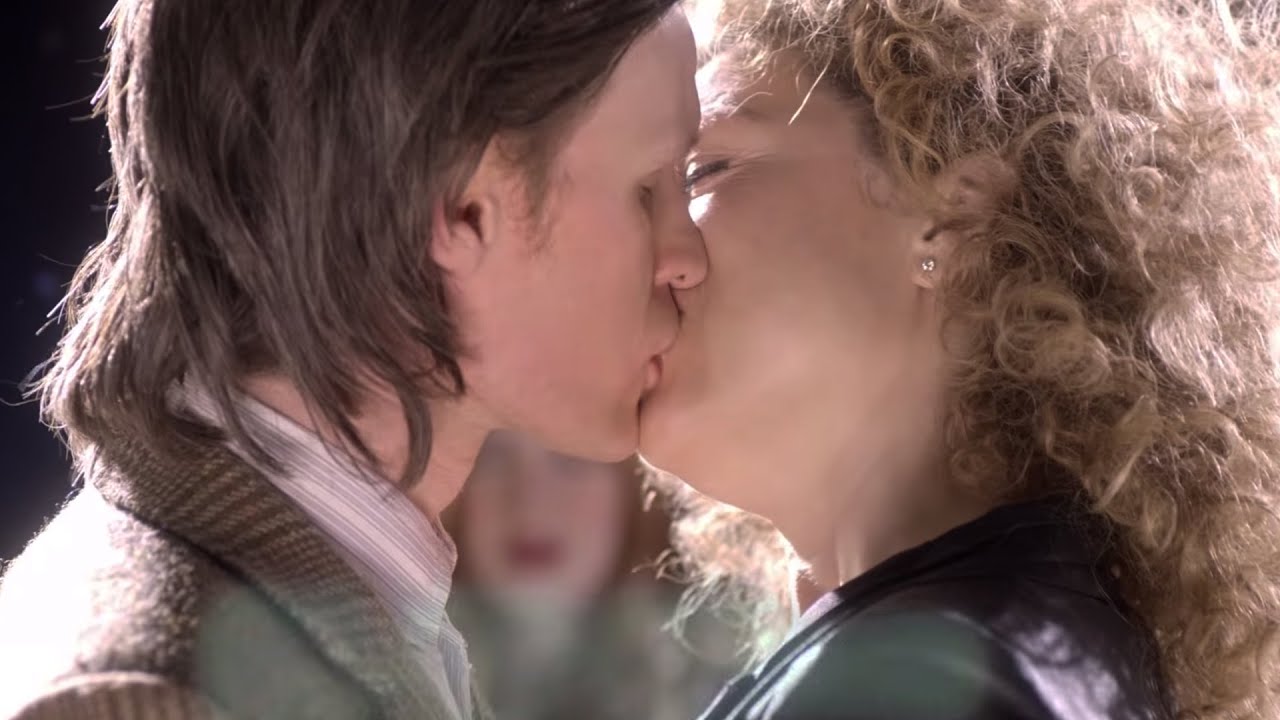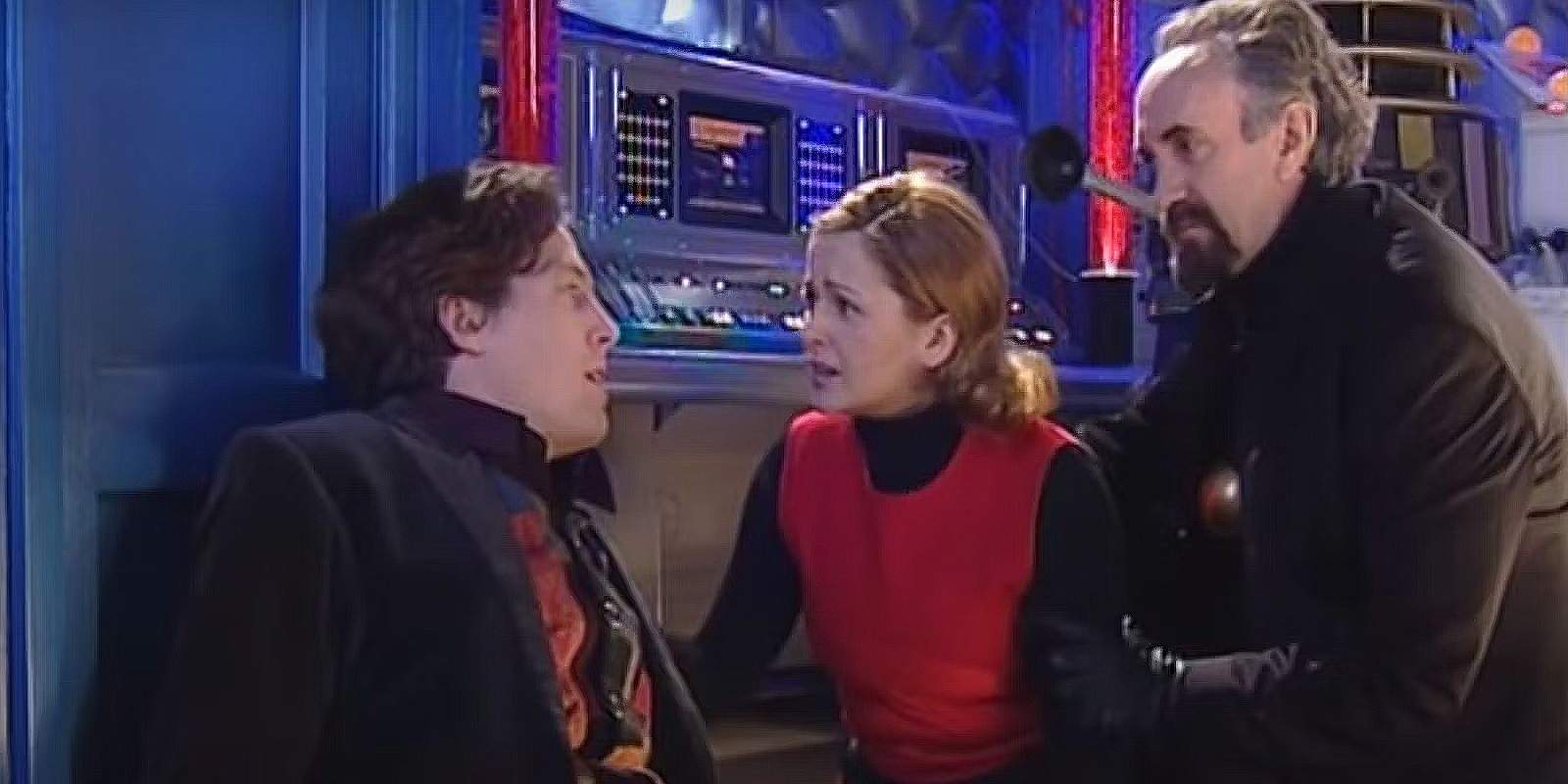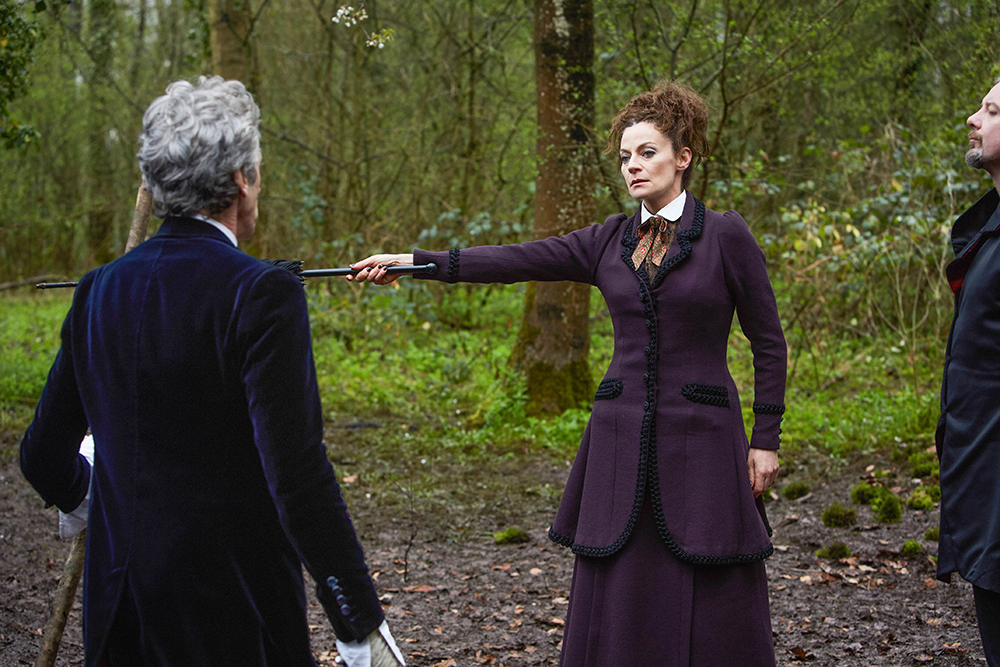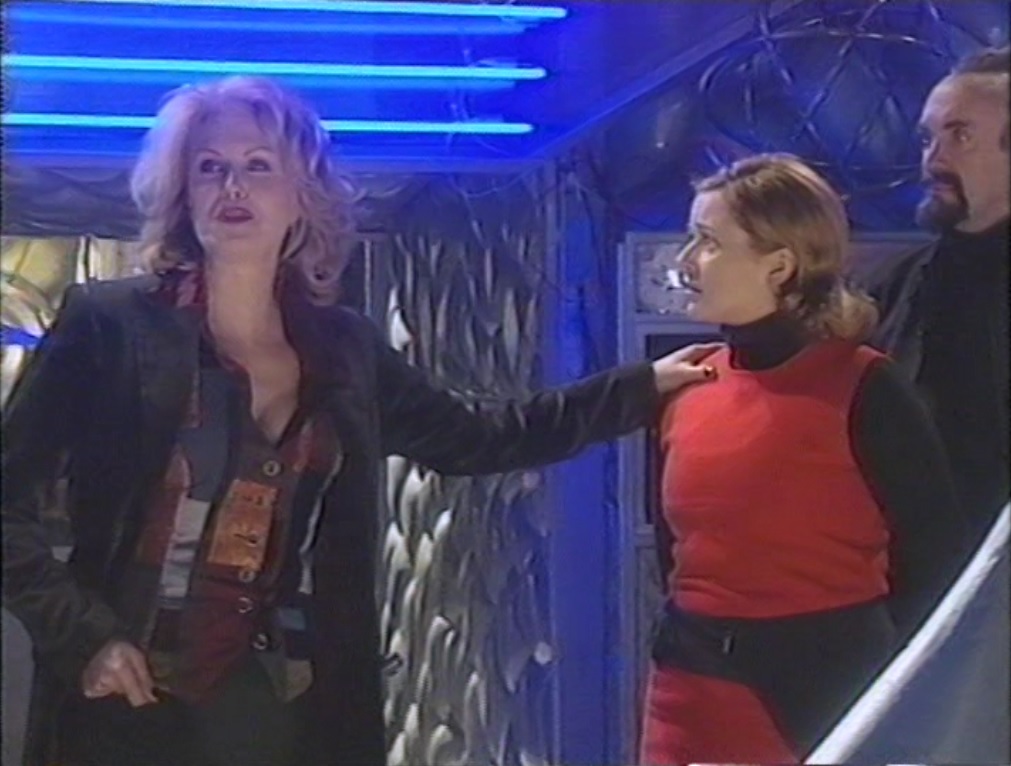Who would have thought that an obscure Doctor Who skit from 1999 could have so accurately foreshadowed what was to come under the leadership of Davies, Moffat and Chibnall? Here are some of ‘The Curse of Fatal Death’s most impressive predictions…
For those of you who don’t know, ‘The Curse of Fatal Death‘ was a 30 minute skit which was produced as part of the BBC’s Comic Relief telethon back in 1999, and starred Rowan Atkinson as an alternative version of the Ninth Doctor, alongside Julia Sawalha as his companion Emma and Jonathan Pryce as the Master. It’s not canon, but does nonetheless foreshadow a number of events and plot points which have cropped up in the run of New Who.
In some ways, this shouldn’t be a massive shock given that one of the showrunners (Steven Moffat) actually penned ‘The Curse of the Fatal Death,’ but we mustn’t let the facts get in the way of a good blog post. So here we go…
The Doctor marrying his companion

In ‘The Curse of Fatal Death,’ it is revealed that the Doctor has gotten engaged to his companion Emma. Indeed, he summons his old enemy the Master to the planet Terserus for the purposes of sharing this news. “Without even knowing I was looking, I have found a woman to love,” he declares. “A woman more fascinating than all my travels through time and space. A girl more exciting than an escape up a ventilation shaft. A lover more thrilling than an army of cybernetic slugs.”
Now, while the New Who Doctors may not have been quite as poetic with their love language as the Doctor was in ‘The Curse of Fatal Death,’ the notion of the Doctor falling in love with, and even marrying, his companion did emerge as a major plot point in the new series. Rose Tyler was the first of these, despite the fact that the Doctor fell short of outright saying that he loved her.
But then of course there was River Song – a companion with whom he had a particularly complex infatuation. And he and River did indeed get married in ‘The Wedding of River Song,’ which leads us onto our second point…
“You simply cannot die!”

In ‘The Curse of Fatal Death,’ the Doctor’s ability to regenerate is destroyed by a discharge of pure Zectronic energy. As he lies against the TARDIS dying, Emma dashes to his side and says: “You can’t die, you’re too… you’re too nice! Too brave, too kind and far, far too silly. You’re like Father Christmas, the Wizard of Oz, Scooby Doo. And I love you very much. And we all need you, and you simply cannot die.”
It’s one of ‘The Curse of Fatal Death’s more sincere moments, and even though Steven Moffat didn’t copy the exact wording in New Who, there was a similar moment in ‘The Wedding of River Song’ when River was trying to save the Doctor from being killed by Lake Silencio.
In the episode, all of time has been disrupted because River averted the Doctor’s death – a fixed point in the timeline. Thus, he has to die in order for time to be put right, but this isn’t something River will allow. “You’ve touched so many lives, saved so many people, ” she explains, “did you think when your time came, you’d really have to do more than just ask? You’ve decided that the universe is better off without you, but the universe doesn’t agree… I can’t let you die without knowing you are loved by so many, and so much, and by no one more than me.”
Oof. Tissues at the ready…
The Master standing with the Doctor
In one of Steven Moffat’s last episodes as showrunner, the Missy incarnation of the Master decides that it is time to from alliance with her old enemy in order to defeat an army of invading Cybermen.
“…[the Doctor’s] right,” she says, to one of her earlier incarnations. “Because it’s time to stand with him. It’s where we’ve always been going, and it’s happening now, today. It’s time to stand with the Doctor.”

Unsurprisingly, this doesn’t go down too well with the John Simm incarnation, who promptly shoots her in the back.
But the Jonathan Pryce incarnation from ‘The Curse of Fatal Death‘ might have been a bit more sympathetic. When he believes that the Doctor has been permanently killed by the blast of Zectronic energy, he makes an impassioned speech. “He was the best and bravest of all my foes,” he declares. “From this day forward I will renounce evil and follow the path of goodness to honour my fallen foe.”
The Doctor regenerating into a woman

One of ‘The Curse of Fatal Death’s more amusing twists is when the Doctor regenerates into a woman, in this case Joanna Lumley. And intriguingly, in ‘The Curse of Fatal Death’ the Joanna Lumley incarnation is in fact the Time Lord’s thirteenth – just as it was for Jodie Whittaker when she was cast in the role.
This was not something that Steven Moffat would have had any influence over, as he had vacated the showrunner role by the time Jodie Whittaker was cast. But is it possible that the incoming producer Chris Chibnall was inspired by ‘The Curse of Fatal Death’? After all, the 1999 version of Joanna Lumley and Jodie Whittaker don’t look hugely dissimilar from one another.
And just to add more fuel to the fire, here’s what Chris Chibnall said when Jodie Whittaker was cast: “I always knew I wanted the Thirteenth Doctor to be a woman, and we’re thrilled to have secured our number one choice.”

So has the whole thing been planned since 1999? Or is it simply a coincidence ? Or did Steven Moffat genuinely open up a time portal and take a peek into the future when he penned ‘The Curse of Fatal Death’? The wild speculation begins here…
And finally…
There are a couple of other subtle nods to ‘The Curse of Fatal Death’ in New Who. In ‘The Eleventh Hour,’ the new Doctor says of planet Earth that he has “put a lot of work into it,” echoing the dying Doctor’s last words in the Comic Relief episode when he says, “Look after the universe for me – I’ve put a lot of work into it.”
And then there is the Twelfth Doctor’s goodbye speech in ‘Twice Upon a Time,’ when he advises his upcoming incarnation to “never be cruel and never be cowardly,” which mirrors Emma’s dialogue in ‘The Curse of Fatal Death’ when she says, “He was never cruel and never cowardly, and it’ll never be safe to be scared again…”
So what do you think about the parallels between ‘The Curse of Fatal Death’ and New Who? Were they coincidental, or were they conscious writing decisions? And can you think of any other nods that we’ve missed? Let us know in the comments below.










Leave a Reply